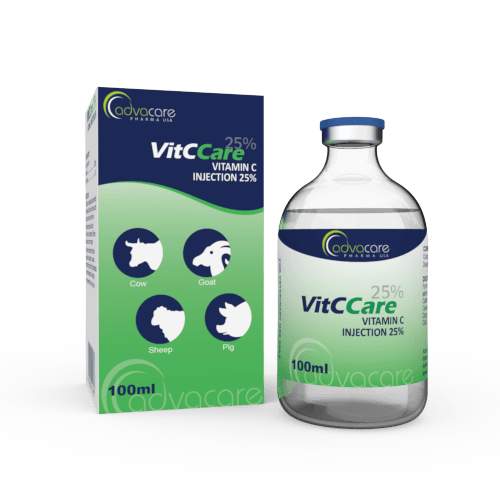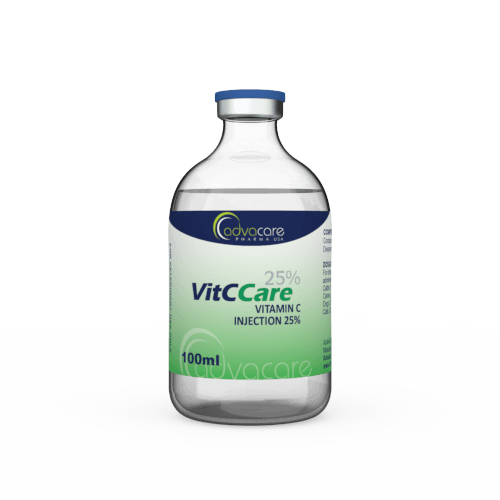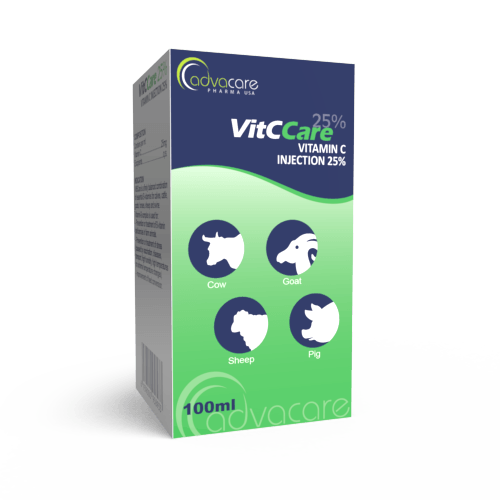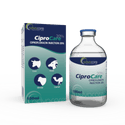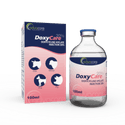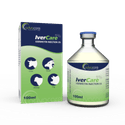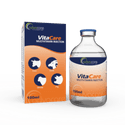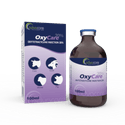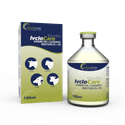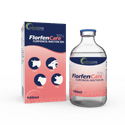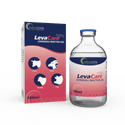- Home›
- Veterinary Pharmaceuticals›
- Veterinary Injections›
- Veterinary Liquid Injections›
- Vitamin C Injection
Vitamin C Injection
Dosage
Packaging
What is Vitamin C?
Active Ingredients: Vitamin C
Vitamin C Injection is a supplement therapy given to pets, dogs and cats, and livestock such as camels, cows, goats, sheep, pigs and horses to treat and prevent vitamin C deficiency and scurvy (in susceptible animals), to help prevent urinary tract infections (UTIs), and support good health. Vitamin C also works as an antioxidant and protects the body against oxidative stress.
Vitamin C is also known by the name of ascorbic acid. It is an organic substance that is classified as an antioxidant, and it is naturally found in foods like fruits and vegetables.
Vitamin C aids in collagen formation, supports the immune system, and enhances wound healing in animals, contributing to their overall well-being and resilience against health challenges. Its antioxidant properties help protect animals from oxidative stress and cellular damage caused by free radicals.
It is important to note that Vitamin C Injection is for veterinary purposes only. While AdvaCare Pharma offers many products available and approved for human use, this formulation is intended to be prescribed by a veterinarian or animal care specialist for an animal.
AdvaCare Pharma is a trusted global exporter of Vitamin C Injection. This veterinary medicine is produced in our GMP-certified facilities in China, India, and the USA. These facilities are routinely audited to ensure they comply with health, safety, and environmental standards.
Why are we a trusted Vitamin C manufacturer?
Vitamin C Injection is manufactured and globally distributed by AdvaCare Pharma, a leading manufacturer of veterinary injections in the pharmaceutical industry. We have been committed to distributing high-quality, GMP-certified veterinary medications for the global market over the past 20 years. As a top Vitamin C manufacturer, we ensure that all of our 100+ veterinary injections surpass our distributors' requirements by conducting routine internal and third-party facility audits.
Uses
What is Vitamin C used for?
It's used to treat and prevent vitamin C deficiency and scurvy.
What animals can be treated with Vitamin C Injection?
It's recommended for many species of animals, including horses, companion animals (cats, dogs), and livestock like camels, cows, goats, sheep, and pigs.
How is a Vitamin C Injection used?
This medication has been manufactured as a liquid, which is packaged in a vial. It is intended to be administered by intramuscular injection. Vitamin C Injection is intended for veterinary use only.
What are the common signs of Vitamin C deficiency in animals?
Common signs of a deficiency include lethargy, weakness, poor appetite, joint pain, and, in severe cases, swollen or bleeding gums.
Is there an age limit for using Vitamin C Injection in animals?
There is typically no age limit for using it in animals, but dosages may vary based on age and developmental stage.
Can Vitamin C Injection be used during pregnancy or lactation in animals?
While it is generally considered safe, its use during pregnancy or lactation in animals should be approached with caution. Consult a veterinarian before administering these injections to pregnant or lactating animals. The veterinarian will consider the benefits and potential risks, adjusting the dosage if necessary to ensure the health and safety of both the mother and offspring.
How does Vitamin C supplementation help prevent UTI in animals?
Vitamin C supplements help by acidifying the urine, creating an environment less conducive to the growth of certain UTI-causing bacteria. Its anti-inflammatory properties can also reduce the likelihood of inflammation that can make the urinary tract more susceptible to infections.
How does it help prevent scurvy?
Vitamin C helps serves as an essential cofactor in the synthesis of collagen, a structural protein crucial for maintaining the integrity of tissues like skin, blood vessels, and connective tissues. When animals lack sufficient vitamin C in their diet, collagen production is impaired, leading to the breakdown of these tissues and the development of scurvy symptoms.
Why is Vitamin C important in livestock?
Livestock animals that lack sufficient ascorbic acid are more susceptible to infectious diseases and face an increased risk of mortality. These animals should receive a diet abundant in vitamin C to bolster their immune health and overall well-being.
What animals might not need as much Vitamin C supplementation as others?
Cats and dogs can synthesize some vitamin C but are also not entirely self-sufficient. They have a limited ability to produce vitamin C, so a balanced diet is essential for their health. The same may be said about cows, sheep, and goats.
What other supplements may work best with Vitamin C in animals?
Vitamin E, zinc, and probiotics can complement vitamin C's effects. Vitamin E acts as an antioxidant, protecting cells and aiding in immune, skin, and muscle health. Zinc supports the immune system, working well with vitamin C to enhance overall vitality. Probiotics maintain a healthy gut, aiding digestion and nutrient absorption.
How quickly does Vitamin C Injection begin to work, and how long do its effects last?
The onset and duration of action for Vitamin C Injection can vary depending on the animal's size, species, and overall health condition. Improvement in symptoms related to Vitamin C deficiency can be observed within a few days of administration. However, the full benefits might take longer to manifest. Regular monitoring and follow-up with a veterinarian are essential.
Are there any other supplements that should not be given alongside Vitamin C?
When giving vitamin C supplements to animals, exercise caution with iron supplements. High vitamin C doses can also interfere with calcium absorption, potentially disrupting calcium balance.
Can Vitamin C Injection improve coat and skin health in animals?
Yes, it plays a significant role in maintaining healthy skin and coat in animals. It aids in the production of collagen, an essential protein for skin elasticity and strength. Vitamin C also has antioxidant properties that can help protect the skin from environmental damage.
Is there a risk of overdose with Vitamin C Injection in animals?
Yes, overdose is possible if Vitamin C is administered in excessively high amounts. Symptoms of an overdose can include kidney stones, severe diarrhea, and in rare cases, hemolysis (destruction of red blood cells) in animals with glucose-6-phosphate dehydrogenase (G6PD) deficiency.
How does Vitamin C Injection interact with other medications in animals?
Vitamin C can interact with various medications. It might increase the absorption of iron from the gastrointestinal tract, which can be beneficial or harmful depending on the animal's iron levels. Vitamin C can also affect the efficacy of certain antibiotics and may interfere with the results of various diagnostic tests.
How should Vitamin C Injection be stored?
This medication should be stored in a dark, dry location under 30°C. The vial should be sealed tightly.
Dosage
How much Vitamin C Injection should be given to horses?
The usual dose is 5-10ml, given twice per week IM.
How much Vitamin C Injection should be given to dogs?
Dogs naturally produce their own vitamin C, so they typically require less supplementation. The recommended dosage of Vitamin C Injection for dogs is approximately 18mg per pound of body weight, distributed throughout the day with food.
How much Vitamin C Injection should be given to cattle?
The typical dose for cattle is 2-4ml, given daily as advised by a veterinary professional.
How much Vitamin C Injection should be given to pigs?
The recommended dose is 3-7ml for adult pigs and 1-3ml for piglets.
What are the signs of Vitamin C overdose in animals, and how can it be managed?
Signs of vitamin C overdose may include diarrhea, stomach upset, or calcium imbalances. If overdose is suspected, seek veterinary advice.
Refer to a veterinary doctor or pharmacist for guidelines on dosage.
Side Effects
As with all pharmaceuticals, some unwanted effects can occur from the use of Vitamin C Injection.
Some common side effects may include but are not limited to:
- diarrhea
- stomach cramps or gas
- excess urination
Serious side effects may include:
- allergic reaction
- severe gastrointestinal distress
If mild side effects are observed, monitor the animal closely and provide ample fresh water to prevent dehydration. In the case of more severe side effects, immediate veterinary attention is critical.
For a comprehensive list of all possible side effects of this medication, consult a veterinarian.
Precautions
Do NOT use Vitamin C Injection for an animal that: • has a known allergy or hypersensitivity to any of the ingredients.
Proper dosing and administration are important, as excessive vitamin C intake can lead to adverse effects.
Animals with underlying health conditions like kidney disease or a history of bladder stones may require special consideration, as high doses of vitamin C could worsen these issues.
Interaction with other medications and the animal's age and life stage should also be taken into account. A balanced diet that meets the animal's overall nutritional needs should remain a priority, with vitamin C supplements serving as a complementary component rather than a primary source of nutrition.
What are the most common animals Vitamin C Injection is used for?
Vitamin C Injection is commonly used for a range of animals, including:
- Camels, cows, goats, sheep: Vitamin C helps boost the immune system and overall health of these animals, ensuring they are better equipped to withstand environmental stressors.
- Horses: For horses, it aids in collagen formation, supporting healthy skin and joints.
- Pigs: In pigs, Vitamin C helps prevent scurvy and enhances their overall well-being.
- Dogs: In dogs, it plays a role in immune function and collagen production, benefiting their skin, coat, and overall vitality.

You might be interested in...
Why AdvaCare Pharma?
As an industry leader, we are aware of our responsibility to provide affordable and sustainable solutions to improve healthcare worldwide.
